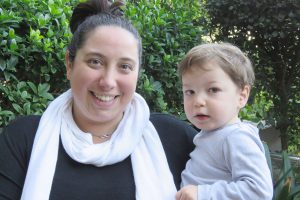With coronavirus rules shifting state-to-state in Australia, and Victoria back in stay-at-home restrictions, it’s another reminder that we’re in this pandemic for the long haul.
Struggling working parents, we hear you! You are incredible! You will get through this with your sanity intact. Positive leadership could be the answer you’re looking for, but how do you lead your family with resilience and positivity during uncertain times? Here are three steps.
A new body of research by a team of Australian and UK psychologists has concluded that sticking together as a society is the key to keeping us practically, psychologically, and physically strong during COVID-19. They also found that the way to bolster solidarity and cooperation is through leadership.
We know from breaking up sibling fights that it’s the same at a family level. But with pressure cooker conditions at home and your kids looking to you for guidance, how do you model calm and lead your family with a positive outlook?
Step 1. Take stock and reset
What a year! Okay, so it hasn’t played out the way you expected when you set your 2020 intentions back in January. While many things are out of your control, it’s important to remember that focusing on what you can control is a choice – a choice that holds the key to maintaining your wellbeing and the wellbeing of your family.
Take the time to reflect on how you’ve handled the juggle in the face of COVID-19 so far. What have you done well? What feelings need to be expressed or acknowledged? Has your inner dialogue been self-limiting? Where could you be more encouraging?
Pausing to take stock, and then refining the way you approach the challenges you’re facing, will help you to better lead according to your core values.
Step 2. Seek out simple pleasures
Time and again, evidence shows us the link between optimism and wellbeing. Viewing life through a more negative lens, ruminating on negative experiences, and emphasising what’s wrong rather than what’s right with the world translate into lower levels of wellbeing.^ We all want a happiness boost. But how do you look on the bright side of life when it’s easier said than done?
Actively seeking out simple pleasures – the little, satisfying, low- or no-cost experiences that emerge in our everyday lives (think: a cuddle from your child, coffee, sleeping in, stretching or moving our bodies… all available to us right now) – experiencing them with all our senses, reflecting, and feeling grateful for their existence, can help you appreciate the good in your life and shift your focus away from negative emotions.
“We can very much get caught up in our thinking and unfortunately our brain tends to focus on the negative,” says psychologist and mum-of-three Clea Wallage. Clea recommends incorporating a gratitude practice into your day to combat negative thinking. “I do this with my kids every single night at dinner time. We ask each other: ‘So, what was good about your day?’ It takes us five minutes for a family of five. We all hear about that. And it puts you into a headspace that’s positive, optimistic and feels good.”
Step 3. Accept you won’t always get it right
Understanding that you won’t always be your best self, and going easy on yourself when you aren’t, is important. We tell our kids it’s okay to make mistakes, so why not extend the same compassion to ourselves?
Have a plan for the times when you need to reset your stress levels, and get your family on board – they are your support system after all! Your plan should be something simple and achievable like going for a walk around the block or taking three deep breaths. Find what works for you. Don’t overthink or overcomplicate.
If you do let stress get the better of you in front of your kids, use it as an opportunity to coach them on how to cope in emotionally difficult situations. Be open with children about what happened, apologise and seek their forgiveness. Explain how you were feeling and how you will try to act differently next time.
Mum-of-three Nicole has exclusively worked from home since restrictions began. “Working from home and supporting my kids’ remote learning has felt like an extreme sport. I’m not proud to say I’ve flown off the handle more than a few times. But once I’m calm again, I always go in for a cuddle, say sorry and explain how I’ll do better next time. It means I can leave any guilt at the door.”
Written by the Circle In team.
Sources:
^Anglim, J. & Horwood, S. & Smillie, L. & Marrero, RJ. & Wood, J. (2020) Predicting psychological and subjective well-being from personality: A meta-analysis. Psychological Bulletin. 146. 10.1037/bul0000226.







